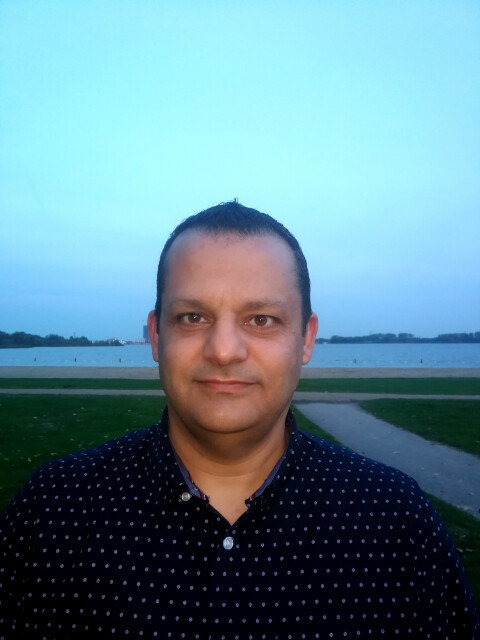
December 3rd 2021
Meet Ayoub: works as an architectural draftsman at Arcadis
The collaboration between Arcadis and the Refugee Talent Hub gives talented candidates with a refugee background the opportunity to start at Arcadis: an interview with Ayoub Choban.
Please note: this article was translated using a translator appHow important is work to you?
'Having a job is important to me. That has always been the case. Previously I was an architect in the Iraqi capital Baghdad and in Dubai in the United Arab Emirates. When I received my refugee status in the Netherlands, I wanted to get to work quickly. Because when I work I feel useful and proud. As an architectural draftsman, you really contribute something with your work. People use your creations and you determine what a country looks like. I like that. That is why I started studying integrated construction management at the Rotterdam University of Applied Sciences. Then I found a job at Arcadis. I am very happy with that. Arcadis is a large, international company and our teams work on great projects. I started here as an intern and have now been working here for two years as an Architectural Revit Modeler. In addition to my job at Arcadis, I am also active as a painter. I love art, especially abstract works.'
2. How important is diversity and inclusion in the workplace?
'I believe that teams with people from different backgrounds are more successful. I saw this myself in Dubai where I worked for a company with dozens of nationalities. Their teams were creative and the employees complemented each other well. I therefore think it is good that Arcadis wants to become more diverse. I personally attended the Future Academy, a program by Arcadis, the Refugee Talent Hub and New Dutch Connections, and then I did an internship together with eleven other status holders. I learned a lot from my work at Arcadis. For example, I was able to obtain my B2 Dutch language diploma through the organization at the expense of the organization and I learned a lot from the projects. It is interesting to see that different materials are used here than in Iraq. The climate there is much drier and hotter and people want to keep the warm sunlight out. Here in the Netherlands, people like large windows that let in a lot of light. Dutch construction also has many rules. I now know that you can look them up in a big, thick book: the Netherlands Building Decree. In Baghdad we did not use such a book, in fact: there are hardly any building rules. I like to notice that I have a lot to contribute in addition to learning. For example, I am the only one in our team who can make videos with Lumion, a software that allows you to visualize projects. Presentation is important in architecture, so with such a video you can convince customers. This recently happened with a project that was on hold due to corona. After seeing my detail video, the project continued. At such a moment I feel proud.'
3. Do you have any tips for colleagues at Arcadis who will be working with professionals with a refugee background in the future?
'It is important to take cultural differences into account. Take Iraq. Everyone works very quickly there. If you have to design an apartment, you can do that in a maximum of one month. The Netherlands is very different. Here you sometimes work for months on one project and there is a lot of attention to detail. A lot of time is also spent on intermediate steps, such as applying for permits and coordinating with contractors. When I first started at Arcadis, my project manager sometimes said: 'Ayoub, try to work more quietly.'
I am glad that he took the time to explain how the Dutch construction process works. As a result, I now have more patience. What I also had to get used to in the beginning is that Dutch colleagues interact very differently with each other. Iraq is very hierarchical and your manager often gives orders during work. Like: you have to do this. At Arcadis, colleagues ask if I can and want to do something. I had to get used to that in the beginning, but now I find it a very pleasant and polite way of working.
I am also happy with my buddy Risette Hoekwater who has taught me a lot about Dutch corporate culture. For example, in the beginning I was afraid that I would be fired immediately if I made a mistake. Risette then made it clear that Arcadis does not work like that. Her support has helped me a lot.”
*Want to see Ayoub's art and architecture? His work can be found on his Facebook page . *